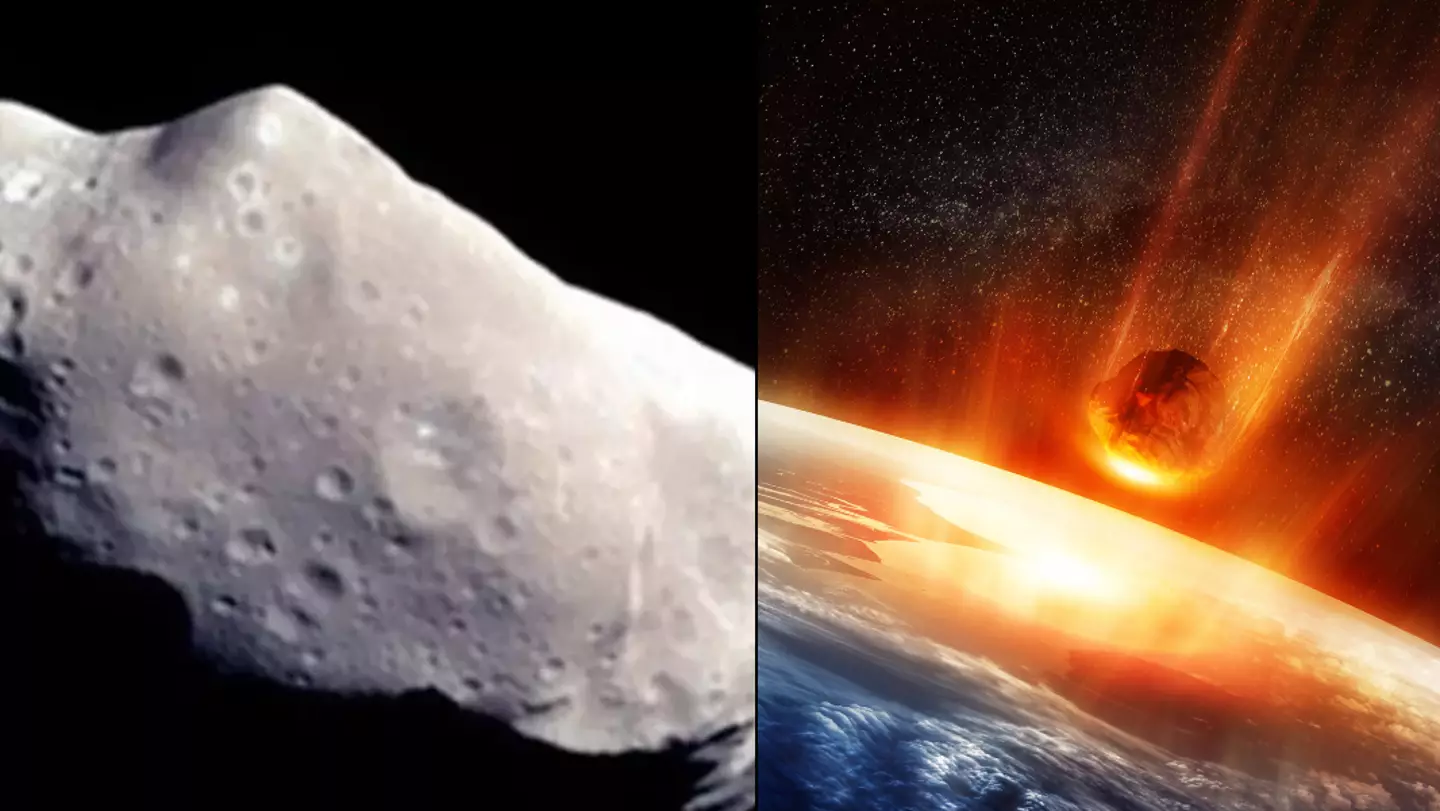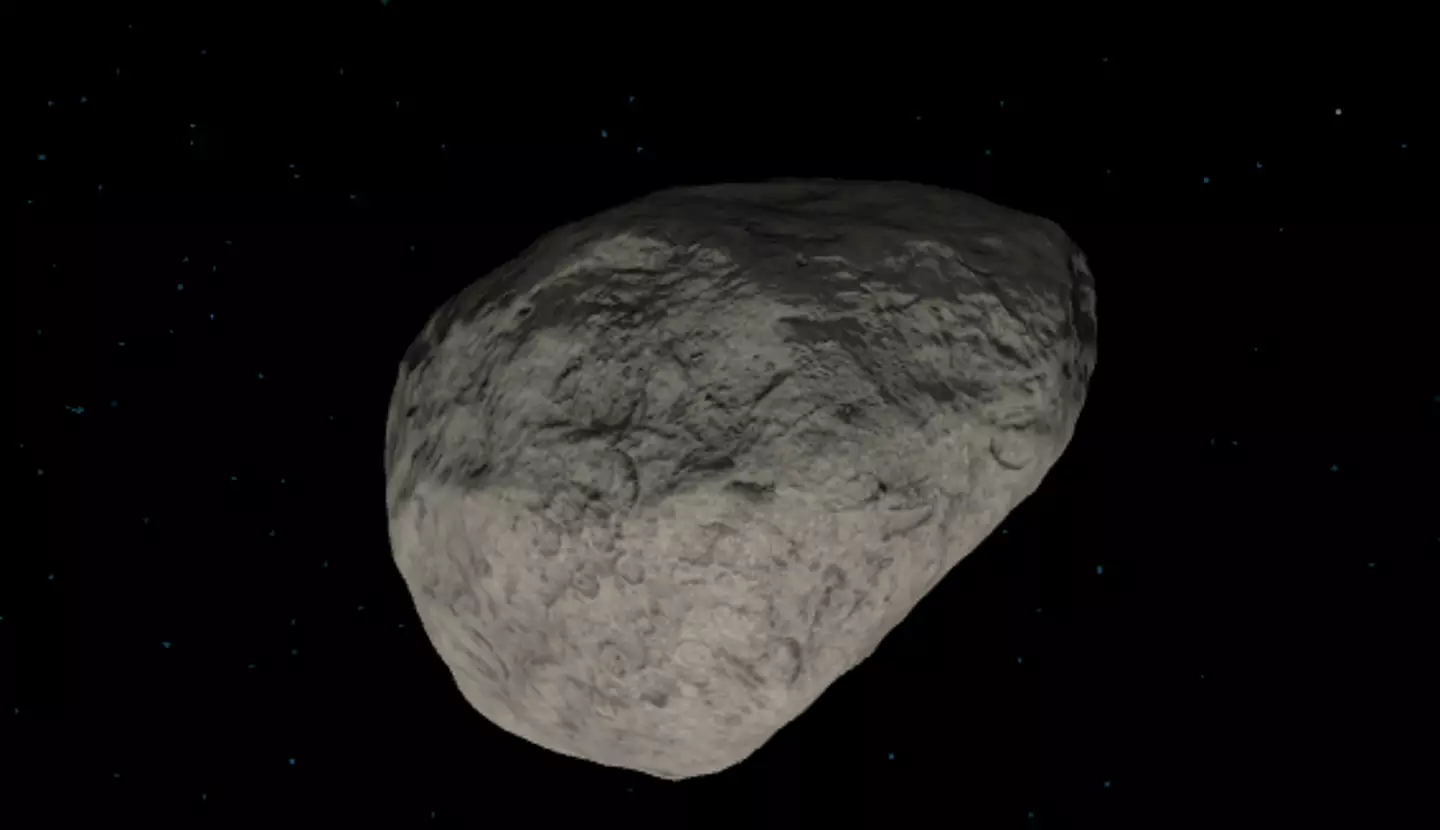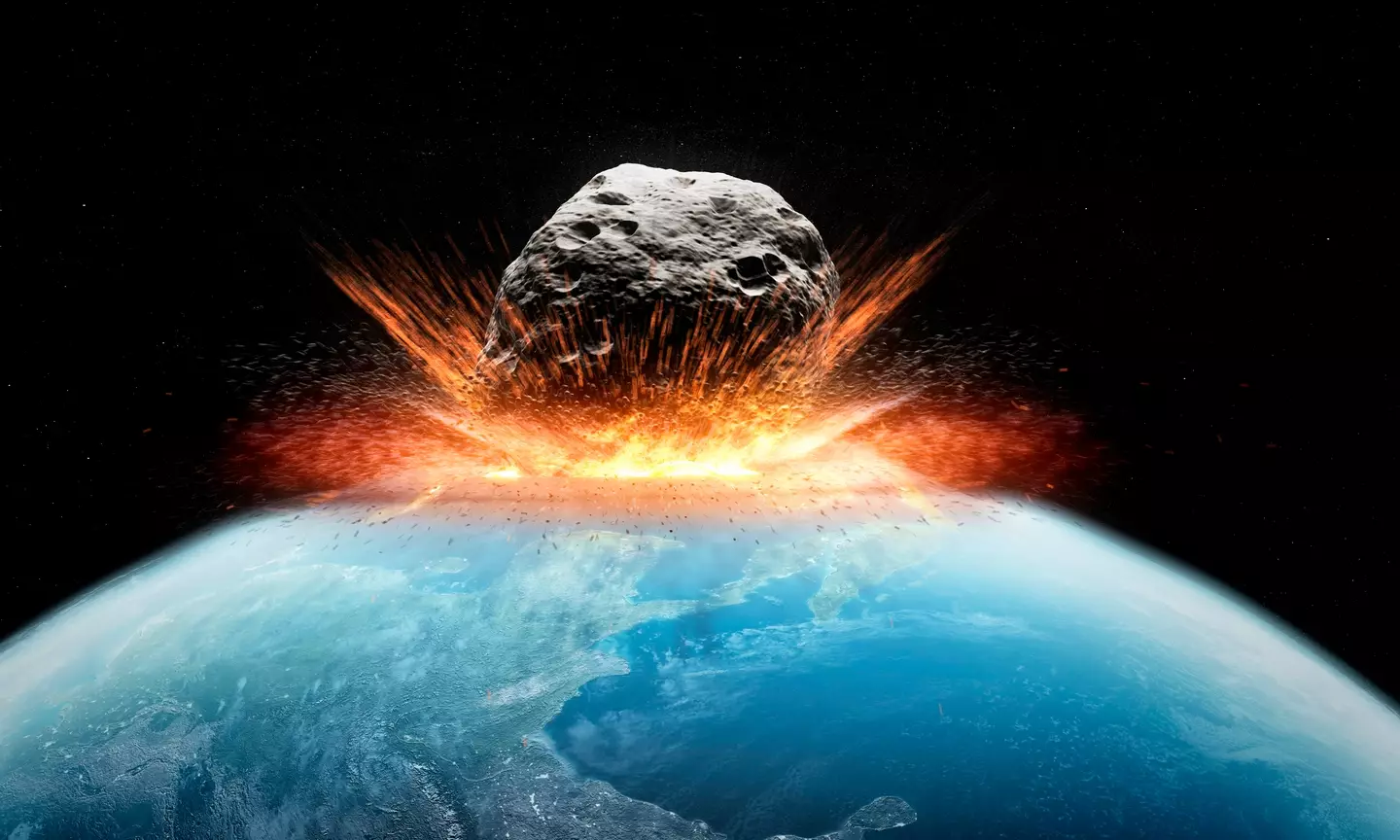
When the 99942 Apophis was first discovered in 2004, we all thought we were doomed.
After all, the 1,100 ft asteroid was named after the demon serpent who represented pure evil and chaos in ancient Egyptian mythology.
NASA identified it 'as one of the most hazardous asteroids that could impact Earth', and in 2017, the space agency gave it a 2.7 percent chance of hitting Earth in 2029.
Advert
This wouldn't have been ideal, as asteroid scientist Ronald-Louis Ballouz told Live Science he created a computer model of the 'God of Chaos' to find out its potential impact.
"Apophis' gravity is about 250,000 times smaller than Earth's. So, we think that events of much smaller magnitude could plausibly shake things up on its surface," he said.
"Apophis quickly gained notoriety as an asteroid that could pose a serious threat to Earth when astronomers predicted that it would come uncomfortably close in [Friday, 13 April] 2029," NASA explained.

Thankfully though, the risk of impact in either 2029, 2036, or 2068 was ruled out thanks to advancements in technology.
NASA used powerful radar observations to reestimate its danger with extreme precision.
After 'refining the estimate of its orbit around the sun' they confidently ruled out 'any impact risk in 2068 and long after'.
"A 2068 impact is not in the realm of possibility anymore, and our calculations don’t show any impact risk for at least the next 100 years," said Davide Farnocchia of NASA’s Center for Near-Earth Object Studies (CNEOS) in 2021.
"With the support of recent optical observations and additional radar observations, the uncertainty in Apophis’ orbit has collapsed from hundreds of kilometers to just a handful of kilometers when projected to 2029.

"This greatly improved knowledge of its position in 2029 provides more certainty of its future motion, so we can now remove Apophis from the risk list.
"When I started working with asteroids after college, Apophis was the poster child for hazardous asteroids.
"There’s a certain sense of satisfaction to see it removed from the risk list, and we’re looking forward to the science we might uncover during its close approach in 2029."
However, we might not be out of the woods just yet after Canadian astronomer Paul Wiegert said that if a 'small object' collides with the asteroid, it could change its course.
"The odds of an unseen small asteroid deflecting Apophis enough to direct it into a collision with Earth," he added.
Thankfully, he clarified: "Given that only five percent of such impulses are in the correct direction to generate an Earth impact, the overall probability of a small impact directing Apophis into a collision with the Earth is less than one in two billion."
I'll take my chances.